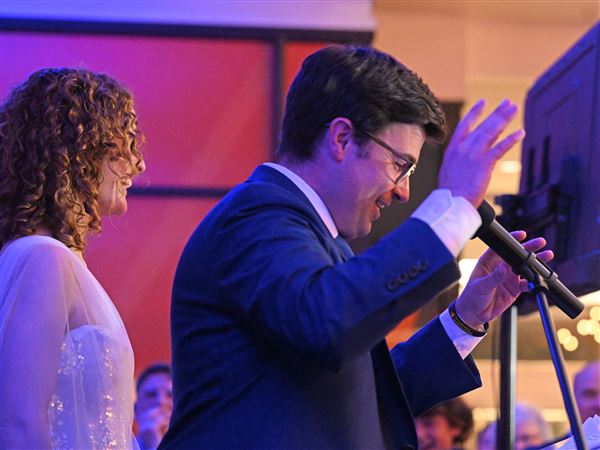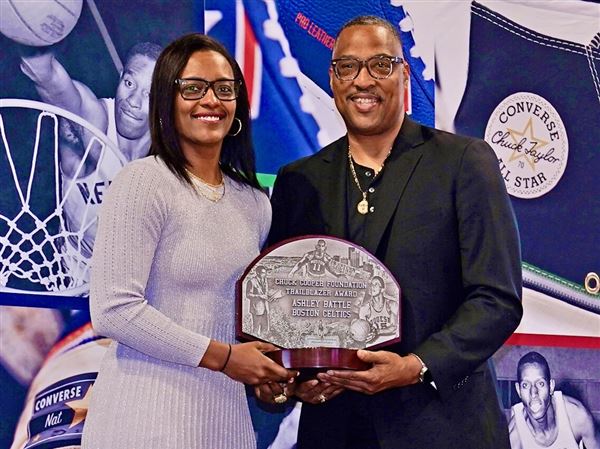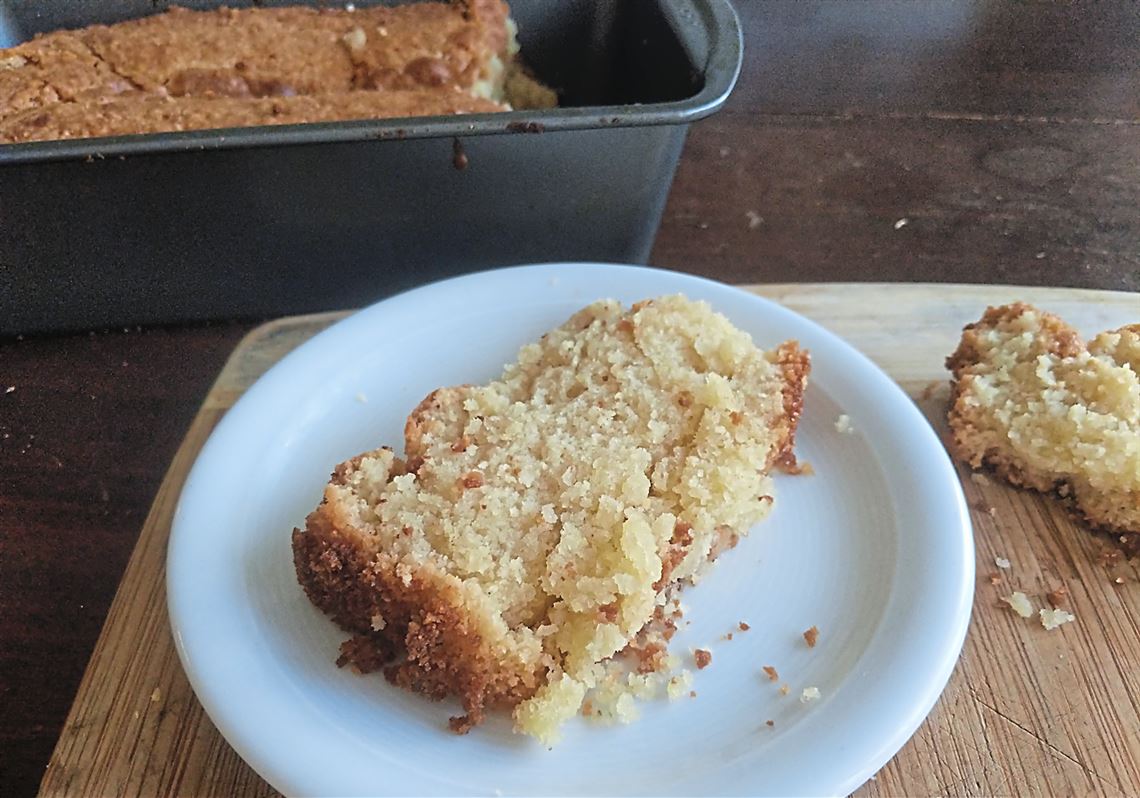Is there anything more precious, or delicious, than a recipe that’s been handed down over the generations? Dorothy Bradshaw doesn’t think so.
Some of the Highland Park resident’s most treasured memories are of helping her mother and grandmother prepare family dinners when she was a little girl growing up in Pittsburgh’s Hill District. Back then, she recalls, everyone was expected to pitch in at meal time, but she never saw it as a chore. In addition to learning a valuable skill, Ms. Bradshaw loved hearing their stories as they sat together working, snapping beans and peeling potatoes.
“It was our Saturday ritual,” she says of the marathon cooking sessions that were guided not by cookbooks or recipe cards but by taste, smell, touch and muscle memory.
So when she learned Chatham University was looking for volunteers at Vintage Senior Services in East Liberty, where she’s been active for the past three years, to collaborate with students on a community cookbook, she didn’t hesitate.
“I like to cook, and I like to get involved,” she says.
She had a lot of company.
In all, nearly two dozen men and women joined Ms. Bradshaw, 62, in sharing their favorite recipes in what would become “The Vintage Generations Cookbook.” It was published earlier this summer and is available online through a blog on the university’s website.
The six-month project was spearheaded by assistant English professor and cookbook enthusiast Carrie Helms Tippen, with $13,000 in funding from a grant from the Council of Independent Colleges and AARP as part of their Intergenerational Connections program.
Launched in 2016, the program connects low-income adults (ages 50 and older) with college and university communities in an effort to combat the social isolation and break down barriers between generations.
Ten students from various departments, who received stipends for their participation in the service program, collected recipes along with the stories behind them, with the goal of producing a cookbook that not only captured what it was like to live in Pittsburgh many years ago but also showcased the vitality, creativity and diversity of the cooks.
“They were the ones who presented all the knowledge, so we wanted to create something that went back to them,” she says.
The student journalists partnered with the Center For Regional Agriculture, Food & Transformation at Chatham to make audio recordings of the stories for future research.
To help build rapport with the seniors, students first had training sessions on how to collect oral histories and conduct interviews. They also talked with nursing faculty about how to interact with older adults so as to be kind and generous, says Ms. Tippen, whose latest book, “Inventing Authenticity,” explores how cookbook writers redefine Southern identity.
Jill Behrmann, a sustainability major who will graduate in December, took a leadership role. Food is her number one hobby, and she loved seeing how young and old connected through recipes and food.
“It was an important moment for us, and them,” she says of the sessions, some of which were so well attended that people often had to double-up for the interviews. “They liked having someone listen to them,” and many of the recipes that ended up in the book — after being sampled during the meetings — are really fantastic.
“It’s a small piece of Pittsburgh,” she says.
The 38 recipes run the gamut from soups, salads and casseroles to breads and desserts, and appeal to both beginners and more experienced cooks with their straightforward directions and use of everyday ingredients. Along with several recipes for greens, you’ll find recipes for haluski, Coca Cola barbecue, various cakes and specialty dishes like keftedes, a type of Greek meatball.
Many, like Penn Hills resident Mary Brown’s recipe for Cold-Water Pound Cake, are traditional dishes that have been handed down over many generations (her great-grandmother was the first to make it), while others, like Ms. Bradshaw’s recipe for a sweet and savory blue cheese, walnut and cranberry tart, are more recent discoveries (she found it on the back of a cookie crust box).
Baked in an Oreo cookie crust, Ms. Bradshaw concedes the tart is an acquired taste. “But I wanted to include something out of the ordinary because we all like to shine once in awhile,” she says.
In working with the students over the six sessions, Ms. Bradshaw says she learned that with cooperation, anything is possible. Seeing her picture and bio in the final product, she adds, was an incredible thrill, along with the fact that young people found value in her stories.
“No one ever asked me to do that before,” she says “and that makes me feel good.”
“There was a lot of buy in,” Ms. Tippen agreed,noting that the relationship with Vintage will continue through the project’s blog. “They all had a good time, and I have a standing invitation for coffee.”
Students and senior contributors will share their experiences of working together on “The Vintage Generations Cookbook” at a book launch party on Thursday. It will be held from 6-7:30 p.m. at Chatham’s Mellon Living Room, on the university’s Shadyside campus (enter through the “grand entrance” in the center of the building facing the street). A limited number of copies of the cookbook will be available for a suggested donation of $10, with proceeds benefiting the center.
Gretchen McKay: gmckay@post-gazette.com, 412-263-1419 or on Twitter @gtmckay.
Cold-Water Pound Cake
PG tested
Flavored with lemon, this fluffy pound cake can be eaten out of hand, or topped with fruit and whipped cream for a luxurious dessert.
1½ cups butter, softened
1½ cups sugar
3 eggs room temperature
1 cup cold water
2 cups flour
2 teaspoons baking powder
1 teaspoon vanilla extract
1½ teaspoons lemon extract
Preheat oven to 350 degrees.
Cream butter and sugar together until smooth. Add eggs one at a time, stirring to mix. Add cold water, flour and baking powder, and mix to combine. Gradually stir in vanilla and lemon extracts.
With rubber spatula, spoon batter into a greased loaf pan, and bake until raised in the center and a tester inserted into the center comes out clean, 35 to 40 minutes.
When the cake is done, let cool in the pan 15 minutes (it will still be warm). Run a knife around the sides of the pan, then turn the cake out onto a wire cake rack.
Serve at room temperature, in thin slices.
Makes 1 cake.
—Recipe by Mary Brown in “The Vintage Generations Cookbook”
First Published: November 19, 2019, 4:34 p.m.
Updated: November 19, 2019, 4:34 p.m.


















